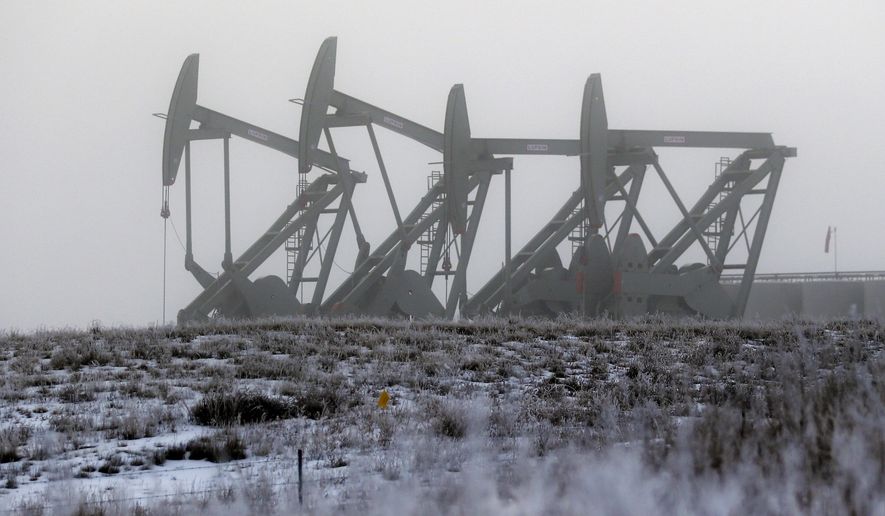Despite continued resistance from the Obama administration, a bipartisan group of senators introduced legislation Tuesday to end the decadeslong ban on U.S. crude oil exports, a move they argue will provide economic benefits at home and offer greater energy security to allies around the world.
The bill demonstrates growing support among Republicans and Democrats for lifting the export ban, implemented in the 1970s when the Arab oil embargo prompted the prohibition of all exports of American crude oil.
The U.S. now has become the world’s largest producer of crude oil and natural gas. Supporters of the measure say it’s time U.S. law catches up to that reality and point to provisions in the legislation that would halt exports in the event of unintended consequences.
“This bill provides triggers to stop exports if gas prices increase or if our economy is adversely affected,” said Sen. Joe Manchin III, a West Virginia Democrat and co-sponsor of the bill.
“Lifting the ban on oil exports will also improve our national security interests by reducing our trade deficits, neutralizing countries like Iran that extract the same types of oil as the United States, expanding our competitive edge in a global marketplace, and providing a stable source of energy to our allies so that they will no longer be dependent on undemocratic regimes,” he said.
Mr. Manchin was joined by Sens. Lisa Murkowski, Alaska Republican, Heidi Heitkamp, North Dakota Democrat, and Bob Corker, Tennessee Republican, in introducing the bill.
The legislation is just one piece of a broader effort on Capitol Hill to take greater advantage of abundant American fuel. The Senate Energy and Natural Resources Committee also is considering a package of bills that would, among other things, increase offshore drilling in the Gulf of Mexico and elsewhere.
The House Energy and Commerce Committee is moving legislation that would expedite federal approval for natural gas exports and take other steps to streamline the approval process for major energy projects.
Although the White House remains opposed to lifting the ban on crude oil exports, President Obama has again expressed support for increasing domestic production of oil and natural gas.
Last week, the administration gave the green light to drilling projects in the Arctic, drawing criticism from environmentalists. Mr. Obama said the U.S. can’t turn its back on fossil fuels.
“I believe that we are going to have to transition off of fossil fuels as a planet in order to prevent climate change. I am working internationally to reduce our carbon emissions and to replace over time fossil fuels with clean energies,” the president said at a press conference last week. “But I think that it is important also to recognize that that is going to be a transition process. In the meantime, we are going to continue to be using fossil fuels.”
Current law doesn’t allow crude oil exports but does permit liquefied natural gas exports. The Energy Department must approve any LNG exports to countries with which the U.S. does not have free trade agreements.
The administration has approved at least six such projects — including the Cove Point LNG facility in Calvert County, Maryland — but about 30 more remain under review.
The House legislation, supporters say, would reform the approval process and allow U.S. allies to import American fuel rather than gas from Russia.
“Our abundance of resources can be used to fortify our own energy security while also supporting our allies in their quest for affordable and reliable energy,” said Rep. Fred Upton, Michigan Republican and chairman of the House Energy and Commerce Committee.
Many Democrats, however, remain opposed to oil and gas exports and the underlying concept of more domestic drilling.
“Climate scientists are telling us that the majority of known fossil fuel reserves need to remain in the ground if we want to avoid the impacts of climate change,” Sen. Al Franken, Minnesota Democrat, said Tuesday at a Senate Energy and Natural Resources Committee hearing. “If we’re really serious about [climate change], we’re going to have to take something off the table.”
• Ben Wolfgang can be reached at bwolfgang@washingtontimes.com.




Please read our comment policy before commenting.